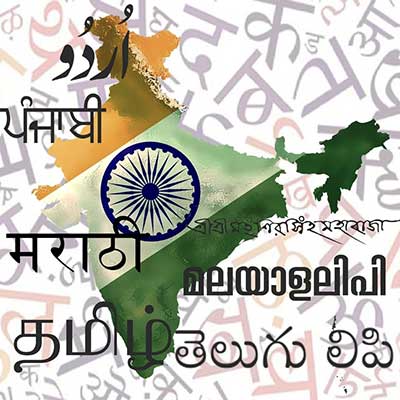Relevance: GS-2: Government policies and interventions for development in various sectors and issues arising out of their design and implementation.
Key Phrases: Functions and responsibilities of the Union and the States, issues and challenges pertaining to the federal structure.
Why in News?
- Remarks by a Hindi actor to the effect that Hindi is the national language of India sparked a controversy recently over the status of the language under the Constitution.
Historical Background
- Jawaharlal Nehru had given an assurance in 1959 that English would remain in official use and as the language of communication between the Centre and the States.
- The Official Languages Act, 1963, did not explicitly incorporate this assurance, causing apprehensions in some States as the January 1965 deadline neared.
- At that time, Prime Minister Lal Bahadur Shastri reiterated the government’s commitment to move towards making Hindi the official language for all purposes.
- In Tamil Nadu, then known as Madras, the prospect of the use of Hindi as the medium of examination for recruitment to the Union public services created an apprehension that Hindi would be imposed in such a way that the future employment prospects of those who do not speak Hindi will be bleak.
- With the Congress government in the State taking the view that the people had nothing to fear about, protests broke out in January 1965.
- It took a violent turn after more and more student activists joined the protest, and continued even after key Dravida Munnetra Kazhagam (DMK) leaders were arrested.
- More than 60 people died in police firing and other incidents as the protests went on for days. The agitation died down later, but by then the Congress at the Centre realised the sensitivity of the language issue among Tamil-speaking people.
- When the Official Language Rules were framed in 1976, it was made clear that the Rules apply to the whole of India, except Tamil Nadu.
Do You Know?
- Hindi got its name from the Persian word Hind, meaning 'land of the Indus River'.
- Bharatendu Harishchandra is regarded as the 'Father of Modern Hindi Literature and Hindi Theatre'.
- In the year 1881, Bihar replaced Urdu with Hindi as its sole official state language, thus, becoming the first state of India to adopt Hindi as its official language.
- The modern Devanagari script came into existence in the 11th century.
- Hindi is the fifth most spoken language in the world.
Status Of Hindi
- Under Article 343 of the Constitution, the official language of the Union shall be Hindi in Devanagari script. The international form of Indian numerals will be used for official purposes.
- The Constituent Assembly was bitterly divided on the question, with members from States that did not speak Hindi initially opposing the declaration of Hindi as a national language.
- Proponents of Hindi were insistent that English was the language of enslavement and that it should be eliminated as early as possible. Opponents were against English being done away with, fearing that it may lead to Hindi domination in regions that did not speak the language.
- There were demands to make Sanskrit the official language, while some argued in favour of ‘Hindustani’.
- There were differences of opinion over the script too. When opinion veered towards accepting Hindi, proponents of the language wanted the ‘Devanagari’ script to be adopted both for words and numerals.
- Some advocated that the Roman script be adopted, as it would facilitate faster learning of Hindi. The predominant opinion was in favour of adopting ‘international numerals’ (the Arabic form used and understood throughout the world) instead of Hindi numerals.
- Ultimately, it was decided that the Constitution will only speak of an ‘official language’. And that English would continue to be used for a period of 15 years.
- The Constitution said that after 15 years, Parliament may by law decide on the use of English and the use of the Devanagari form of numbers for specified purposes.
Eighth Schedule
- The Eighth Schedule contains a list of languages in the country. Initially, there were 14 languages in the schedule, but now there are 22 languages.
- There is no description of the sort of languages that are included or will be included in the Eighth Schedule. There are only two references to these languages in the text of the Constitution.
- One is in Article 344(1), which provides for the formation of a Commission by the President, which should have a Chairman and members representing these scheduled languages.
- The purpose of the Commission is to make recommendations for the progressive use of Hindi for official purposes of the Union and for restricting the use of English.
- The second reference, found in Article 351, says it is the Union government’s duty to promote the spread of Hindi so that it becomes “a medium of expression for all elements of the composite culture of India” and also to assimilate elements of forms and expressions from Hindustani and languages listed in the Eighth Schedule.
Conclusion:
- National integration in a multilingual country does not require the imposition of one official language on the country, especially when the language selected for the purpose is one of its many regional languages even if it happens to be that of the largest linguistic group in the country.
- The focus should not be on establishing one national language, but should be shifted to strengthening the official languages whose importance cannot be disregarded.
Sources: The Indian Express
Mains Question:
Q. What does national language debate mean for Indian Pluralism?(150 words).









